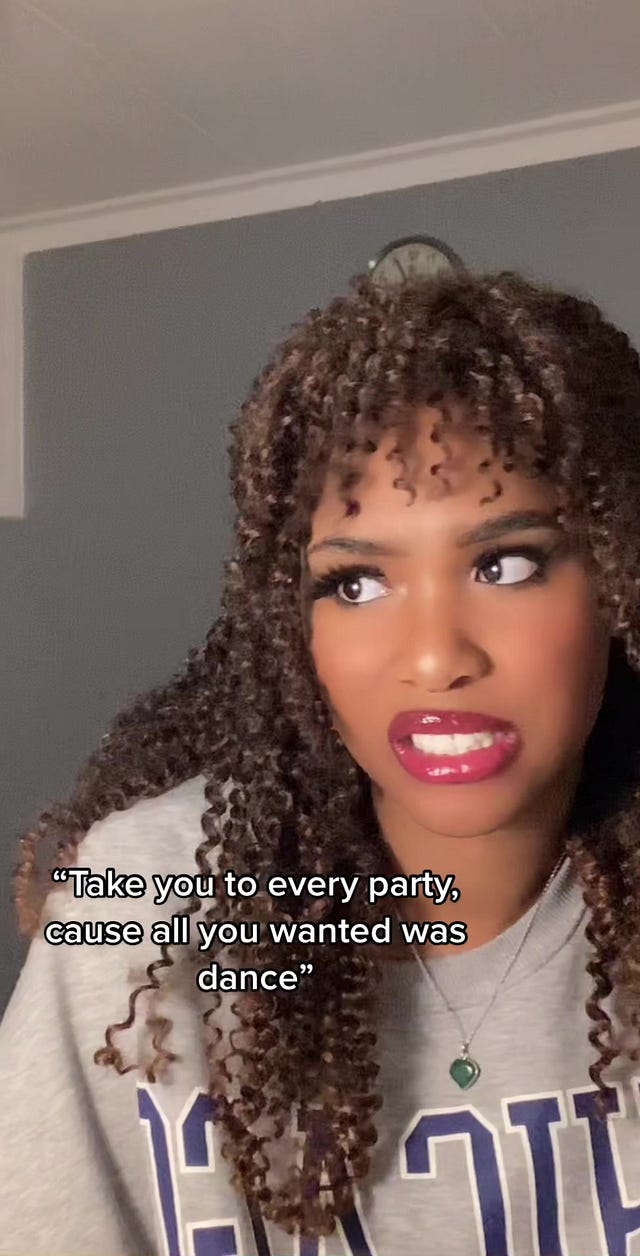#TheNewProtagonist- Intentionally Single
It’s Valentine’s day and instead of focusing on coupledom, we thought we’d swerve and dedicate this issue to singles. To my singles, happy Valentine’s Day we see you!
As a reminder, we will keep it simple every week and send you one number, two insights, and three links that will keep you ahead of the shifts happening in society.
1 Number
#TheNewProtagonist
46% of Americans identify as single today, according to the U.S. Census Bureau. While in our data, we see 35% of Gen Z have no interest in pursuing a relationship, nor do 30% of Boomers.
Why pay attention? Most marketers view the world through the lens of their audiences’ aspirations, but we often skip over the profound benefits people find while single.
2 Insights
1. Intentionally Single
What: First and foremost, what does single even mean?
We would argue being single isn’t really what it sounds like. Single people have a vast spectrum of deep and meaningful connections. It’s essential to recognize the richness of their relationship choices. It’s not a person alone against the world; it's a person not in a confirmed romantic relationship.
Interestingly, we see a rise in people intentionally opting to be single.
Have you heard the song from Miley Cyrus that has taken over the internet in the last two weeks, “I can buy myself flowers” (or better yet, the mash-ups on TikTok)? Or read NYTimes bestseller Lessons in Chemistry. They add to the cultural chorus of redefining relationships and self-worth, proclaiming why get lost in the desires of others when you can get intentional about what you want from the world?
 Tiktok failed to load.
Tiktok failed to load.Enable 3rd party cookies or use another browser
What the data tells us:
Being single isn’t what you do post-rejection. Instead, for nearly half of single people, it’s a choice to create space to design a meaningful life.
The pandemic ushered us into ‘the age of intentionality’- a new age defined by a stronger connection to what drives personal fulfillment and satisfaction. This age has already impacted how we approach work and life (e.g., quiet quitting, the soft life, etc.). This intentionality is a core benefit of being single, as singles say they can pursue their passions, growth, and autonomy.
See all our data here
What to think about:
Let’s kick off Valentine’s day by acknowledging that being single isn’t something to fix, like in your standard rom-com. Instead, it can be a moment to celebrate a fulfilling and meaningful relationship with yourself. 68% of all Americans say they are tired of the “media and advertising showing a false idealistic image that being in a relationship is the only way to live a happy life” (72% of singles, 74% LGBTQ).
2. Financially Empowered, But Penalized
What: American singles strongly agreed that flying solo helps them financially but that government policies also hurt them. Fortune journalist Megan Leonhardt covered our data here on “The high price of being single”
This isn’t just a trend in the US; we see this in China as well.
In China, a 13-second clip of a single woman counting money to give out to children during the Lunar New Year went viral. It received more than 13M likes and 1M comments in two days! Traditionally these red packets are only given out by married couples, but showing single women handing these gifts is a sign of asserting independence and financial stability.
JingDaily writes: The video’s success arrives at a time when younger generations are facing increasing social and economic pressure. This has led them to question the importance of marriage. It’s a trend that flies in the face of traditional Chinese culture….The video tapped this phenomenon brilliantly. But it also highlighted one successful response to such conversations: the assertion of one’s economic power. Single life doesn’t have to be scary — if you’re financially successful.
What the data tells us:
Being on your own can help build money management skills. Seven out of 10 (71%) singles agreed "being single taught me how to work with my money really well," and nearly as many (68%) say that they "feel financially empowered and more in control by being single." Six out of 10 (59%) say they don't plan to ever merge their finances with a partner.
However, singles don’t appreciate that a ticket for one means higher taxes and more expensive healthcare policies. Strong majorities of singles "dislike paying more taxes than married couples" (74%) and "paying more for healthcare and social benefits than married couples" (68%). While (79%) say the government should "offer more tax breaks for single people (69% of all Americans)."
What to think about:
As more people seek independence from their relationship status, brands must adjust and reflect their new desires. Nearly half of the country is single and building vital financial independence skills, yet they are underrepresented in marketing, lifestyle aspirations, and financial services.
3 Links
Tinder Hearted How did a dating app become my longest-running relationship? (The Cut)
‘Ghosting,’ ‘Orbiting,’ ‘Rizz’: A Guide to Modern Dating Terms (NYTimes)
She friend-zoned him. He’s suing her for $2.3 million over it. (The Washington Post)
Bonus: Check out our recent work with Franklin Templeton the Voice of the American Worker Study.
Curiosity is contagious, if this newsletter makes you think or smile, please share to spread more curiosity in the world!
Penned by Libby Rodney and Abbey Lunney, founders of the Thought Leadership Group at the Harris Poll. To learn more about the Thought Leadership Practice just reach out directly to one of us or find out more here.










